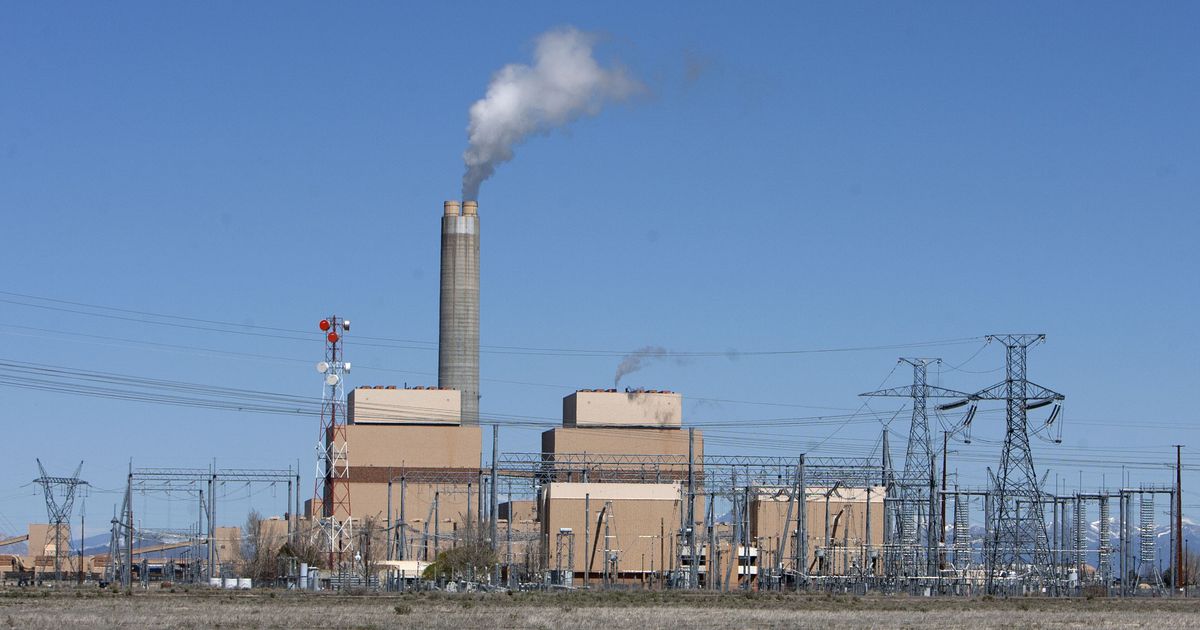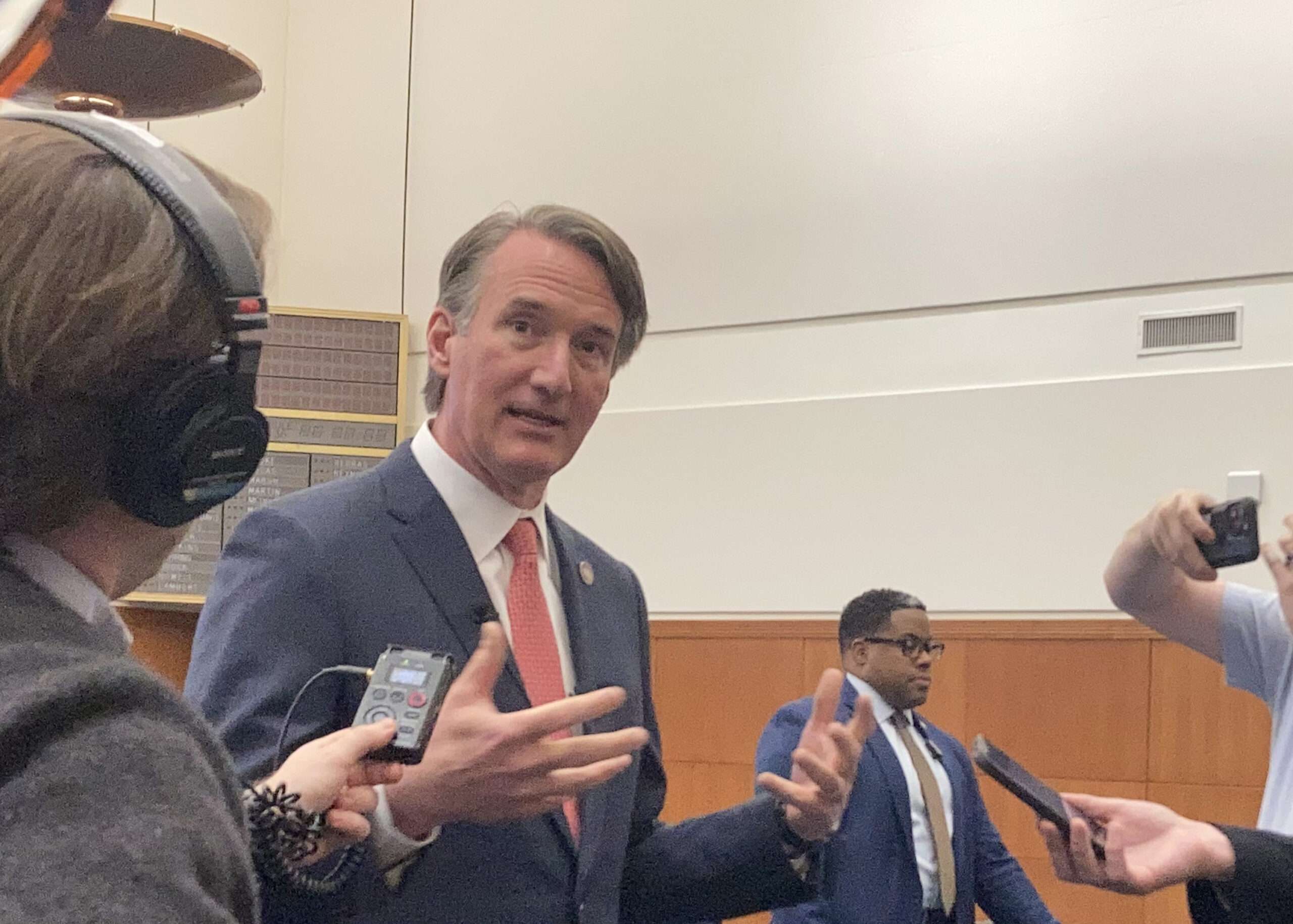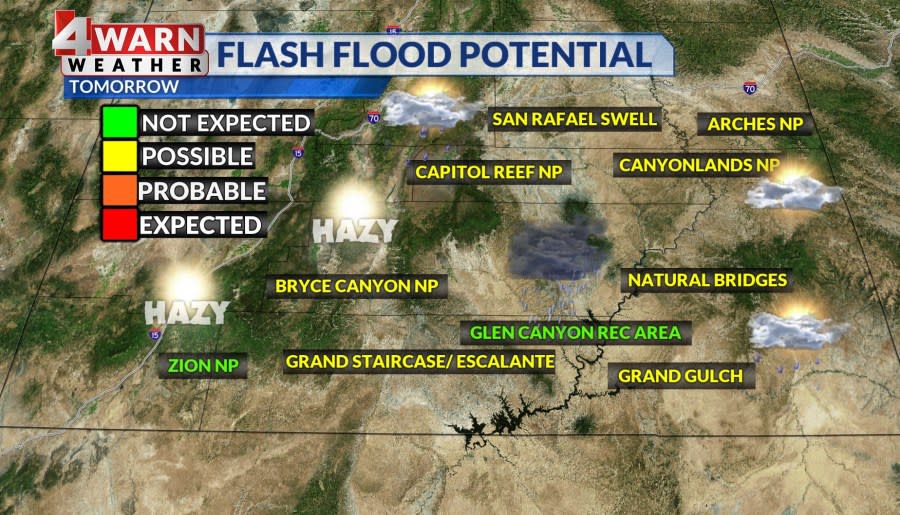The Intermountain Power Agency has urged Gov. Spencer Cox to veto a recently adopted energy bill, warning the measure could have widespread repercussions for Utah.
SB161, approved during the final week of the 2024 Legislature, could force IPA to sell a coal-fired power plant, which is set to be shut down, to the state to keep it operating.
Cox has until Thursday to take final action on the legislation. His office said Monday he is “still reviewing” the legislation but would not comment further. SB161 fell three votes short of a veto-proof majority in the Utah House and two votes short in the state Senate.
The GOP-controlled Legislature worries the state may not be able to meet the growing population’s electricity needs without coal-fired power plants.
At the same time, IPA is working to shutter its coal-fired power plant in Millard County next summer and switch to a natural gas-powered facility as part of a transition to more environmentally friendly plants.
Under SB161, IPA must apply to the state for a new permit by July 1, 2024, to keep the coal plant operating. But IPA has an agreement with the federal Environmental Protection Agency to cease operation of the coal plant by July 1, 2025.
On March 8, IPA Chair Nick Tatton sent a letter to Cox asking him to veto SB161 and spelling out the potential consequences if he does not. In that letter, obtained through an open records request, Tatton warned that applying for a permit to continue operating the Millard County plant would break the existing agreement with the EPA
“By committing to submit an application for an Alternative Permit by July 1, 2024,” Tatton wrote, “IPA would risk EPA action to effectively shut down the existing coal-fired facilities by mid-November 2024.”
Ash accord
Burning coal for power produces ash that is stored in large ponds. In 2015, the EPA issued new rules for storing coal ash, and those facilities could be closed until they met the new regulations.
In 2018, the EPA triggered the closure of IPA’s ash impoundment units with a mandate that they be brought into compliance by 2021. Because IPA was in the process of closing its coal plants, the EPA agreed to a longer timeline. Tatton noted that SB161 forces IPA to break that deal, which could lead the feds to order a shutdown of those ash storage facilities.
“The risk is real. EPA has taken similar action with respect to coal-fired generating facilities in other states, issuing orders for those facilities to cease operating their impoundments within 135 days,” Tatton wrote. “The only way for IPA to comply with such a mandate would be to cease burning coal — and producing electricity — altogether.”
Tatton warned that Utah will face other risks if Cox signs the bill. It could imperil construction of IPA’s gas-powered plant, dubbed IPA Renewed, for which the organization has issued more than $2 billion in bonds and expects to spend billions more.
Attempting to keep the coal plant open beyond July 1, 2025, might also impact Rocky Mountain Power. The state has submitted its plan for reducing regional haze to the EPA for review. That plan, which is still under evaluation by the federal agency, did not require RMP to install pricey pollution controls on its Hunter and Huntington coal-fired plants because IPA was set to close its coal units.
“Requiring even one of those units to continue operating,” Tatton stated, “will almost certainly require other Utah industrial sites to install costly pollution controls.”
IPA and others raised these concerns with lawmakers during the 2024 session to no avail.
Air quality concerns
On Feb. 28, the same day lawmakers gave final approval to SB161, Tatton and other municipal leaders wrote to Cox, EPA Administrator Michael S. Regan, EPA Region 8 Administrator KC Becker and Utah Department of Environmental Quality Executive Director Kim Shelley.
The letter warned that the legislation could spur a legal dispute, costing taxpayers “substantial amounts of money.” It also said proponents, including sponsoring Sen. Derrin Owens, R-Fountain Green, have falsely asserted the bill does not impact federal law, specifically the regional haze plan
The Feb. 28 letter raised the prospect that Utah’s DEQ was allowing itself to be steamrolled by state lawmakers.
“When faced with the prospect of EPA involvement in this issue, DEQ has urged EPA and state legislators not to become involved because DEQ has been purportedly attempting to resolve the bill’s issues,” the letter said. “However, through asking direct questions to DEQ leadership about its efforts to oppose SB161, IPA’s representatives learned that DEQ is not effectively engaged to keep SB161 from passing or to request amendments to SB161 to address our legal and practical concerns. Today’s actions by the Utah House of Representatives underscore the fact that DEQ does not have the situation under control.”
The EPA responded March 7, explaining that state laws cannot create an exception to federal regulations and that enacting the legislation could lead to federal intervention to enforce those regulations. Keeping either or both of the IPA plants operating would require revising the state’s regional haze proposal. If the EPA rejects the updated proposal, it could implement its own air quality plan that the state would be required to implement.
Owens provided The Salt Lake Tribune with a copy of a response to the EPA letter penned by Michael Nasi, a partner with the Texas-based Jackson Walker law firm. The outside firm conducted a feasibility study, which is the basis for SB161, for keeping the IPA facilities running.
(According to the state’s financial transparency website, Utah has paid Jackson Walker nearly $400,000 so far this year.)
Nasi’s response letter criticized IPA for soliciting federal intervention and accuses it of colluding with the EPA.
“The solicitation of EPA’s letter,” Nasi wrote, “is an extremely questionable legal tactic, given how it functionally invites a federal agency (that has recently demonstrated a hostility toward both the rule of law and the state of Utah’s sovereignty) to prematurely and unnecessarily weigh in on issues that are, at this time, squarely within exclusive authority of the state of Utah.”
The response letter also asserts that any threat of intervention by the EPA is premature and would be an unwelcome federal overreach.
That could set up another showdown between the state and the federal government because of other legislation passed this year. SB57 creates a process for the state to ignore federal laws and regulations. Lawmakers repeatedly cited onerous federal environmental regulations as the need for the bill. Legislative lawyers warned that the measure could conflict with the Constitution’s supremacy clause, which says federal law takes precedence over state law.




































